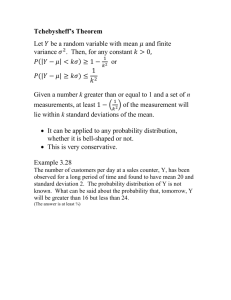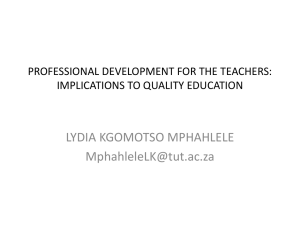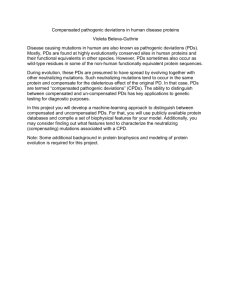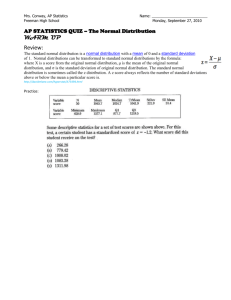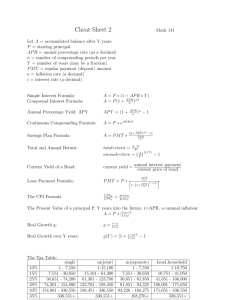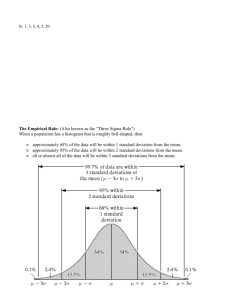Protocol Deviation Policy
advertisement
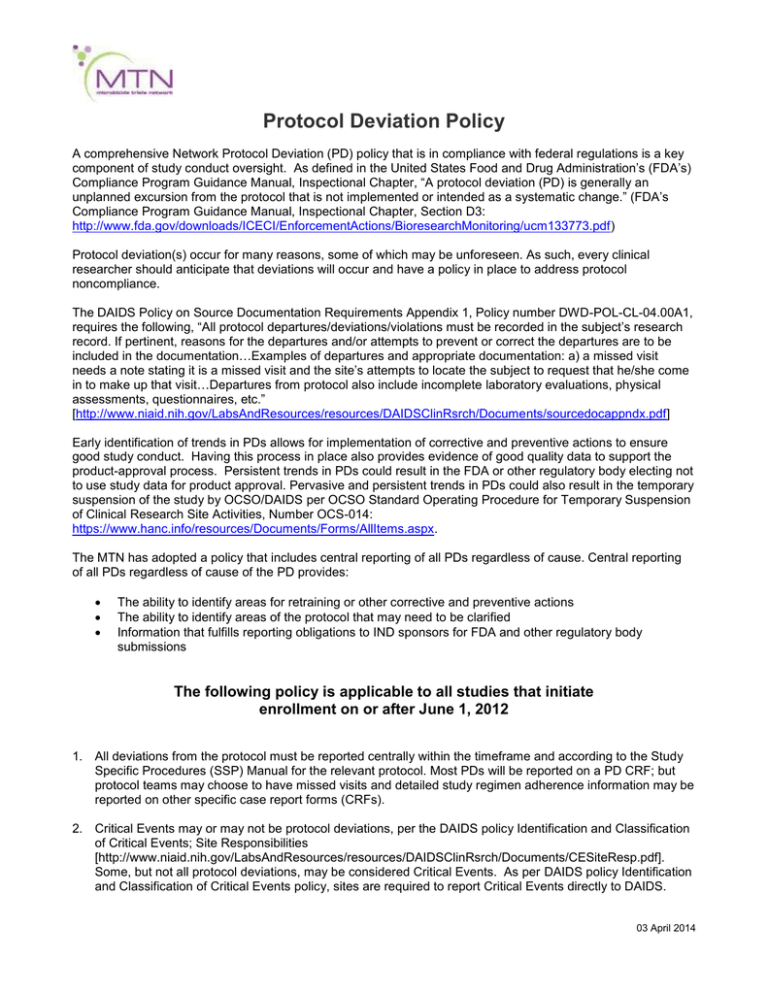
Protocol Deviation Policy A comprehensive Network Protocol Deviation (PD) policy that is in compliance with federal regulations is a key component of study conduct oversight. As defined in the United States Food and Drug Administration’s (FDA’s) Compliance Program Guidance Manual, Inspectional Chapter, “A protocol deviation (PD) is generally an unplanned excursion from the protocol that is not implemented or intended as a systematic change.” (FDA’s Compliance Program Guidance Manual, Inspectional Chapter, Section D3: http://www.fda.gov/downloads/ICECI/EnforcementActions/BioresearchMonitoring/ucm133773.pdf) Protocol deviation(s) occur for many reasons, some of which may be unforeseen. As such, every clinical researcher should anticipate that deviations will occur and have a policy in place to address protocol noncompliance. The DAIDS Policy on Source Documentation Requirements Appendix 1, Policy number DWD-POL-CL-04.00A1, requires the following, “All protocol departures/deviations/violations must be recorded in the subject’s research record. If pertinent, reasons for the departures and/or attempts to prevent or correct the departures are to be included in the documentation…Examples of departures and appropriate documentation: a) a missed visit needs a note stating it is a missed visit and the site’s attempts to locate the subject to request that he/she come in to make up that visit…Departures from protocol also include incomplete laboratory evaluations, physical assessments, questionnaires, etc.” [http://www.niaid.nih.gov/LabsAndResources/resources/DAIDSClinRsrch/Documents/sourcedocappndx.pdf] Early identification of trends in PDs allows for implementation of corrective and preventive actions to ensure good study conduct. Having this process in place also provides evidence of good quality data to support the product-approval process. Persistent trends in PDs could result in the FDA or other regulatory body electing not to use study data for product approval. Pervasive and persistent trends in PDs could also result in the temporary suspension of the study by OCSO/DAIDS per OCSO Standard Operating Procedure for Temporary Suspension of Clinical Research Site Activities, Number OCS-014: https://www.hanc.info/resources/Documents/Forms/AllItems.aspx. The MTN has adopted a policy that includes central reporting of all PDs regardless of cause. Central reporting of all PDs regardless of cause of the PD provides: The ability to identify areas for retraining or other corrective and preventive actions The ability to identify areas of the protocol that may need to be clarified Information that fulfills reporting obligations to IND sponsors for FDA and other regulatory body submissions The following policy is applicable to all studies that initiate enrollment on or after June 1, 2012 1. All deviations from the protocol must be reported centrally within the timeframe and according to the Study Specific Procedures (SSP) Manual for the relevant protocol. Most PDs will be reported on a PD CRF; but protocol teams may choose to have missed visits and detailed study regimen adherence information may be reported on other specific case report forms (CRFs). 2. Critical Events may or may not be protocol deviations, per the DAIDS policy Identification and Classification of Critical Events; Site Responsibilities [http://www.niaid.nih.gov/LabsAndResources/resources/DAIDSClinRsrch/Documents/CESiteResp.pdf]. Some, but not all protocol deviations, may be considered Critical Events. As per DAIDS policy Identification and Classification of Critical Events policy, sites are required to report Critical Events directly to DAIDS. 03 April 2014 3. Per FDA regulations and ICH Good Clinical Practices (GCP), protocol deviations are allowed to occur without prior sponsor and IRB/EC approval only when the need arises to eliminate apparent immediate hazards to study participants. (ICH GCP Guidance for Industry Section 4.5.2, 4.5.4; 21 CFR 312.66; 21 CFR 812.35[a] [2]). Although these excursions are allowable, they are PDs and must be reported both to the study sponsor and to local IRB per institutional policies within a specified amount of time. 4. If a deviation is anticipated to occur (a “planned deviation”), the site should contact the FHI 360 CRM immediately. The FHI 360 CRM will work with the site and MTN Regulatory Department to request approval for these by the local IRB/Ethics Committee and the Study Sponsor(s). 5. Sites are to follow local regulatory requirements for reporting PDs to relevant regulatory bodies. 6. A central file of deviations will be maintained on the ATLAS website and will be available to Network Leadership, DAIDS, OCSO, Protocol Teams, the Network Evaluation Committee and other MTN groups, as needed. 03 April 2014
